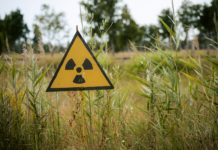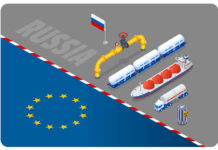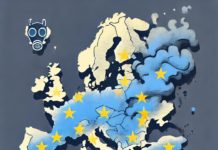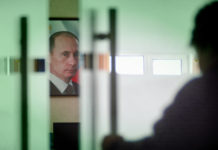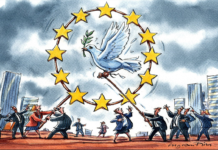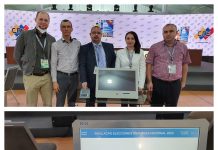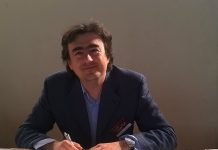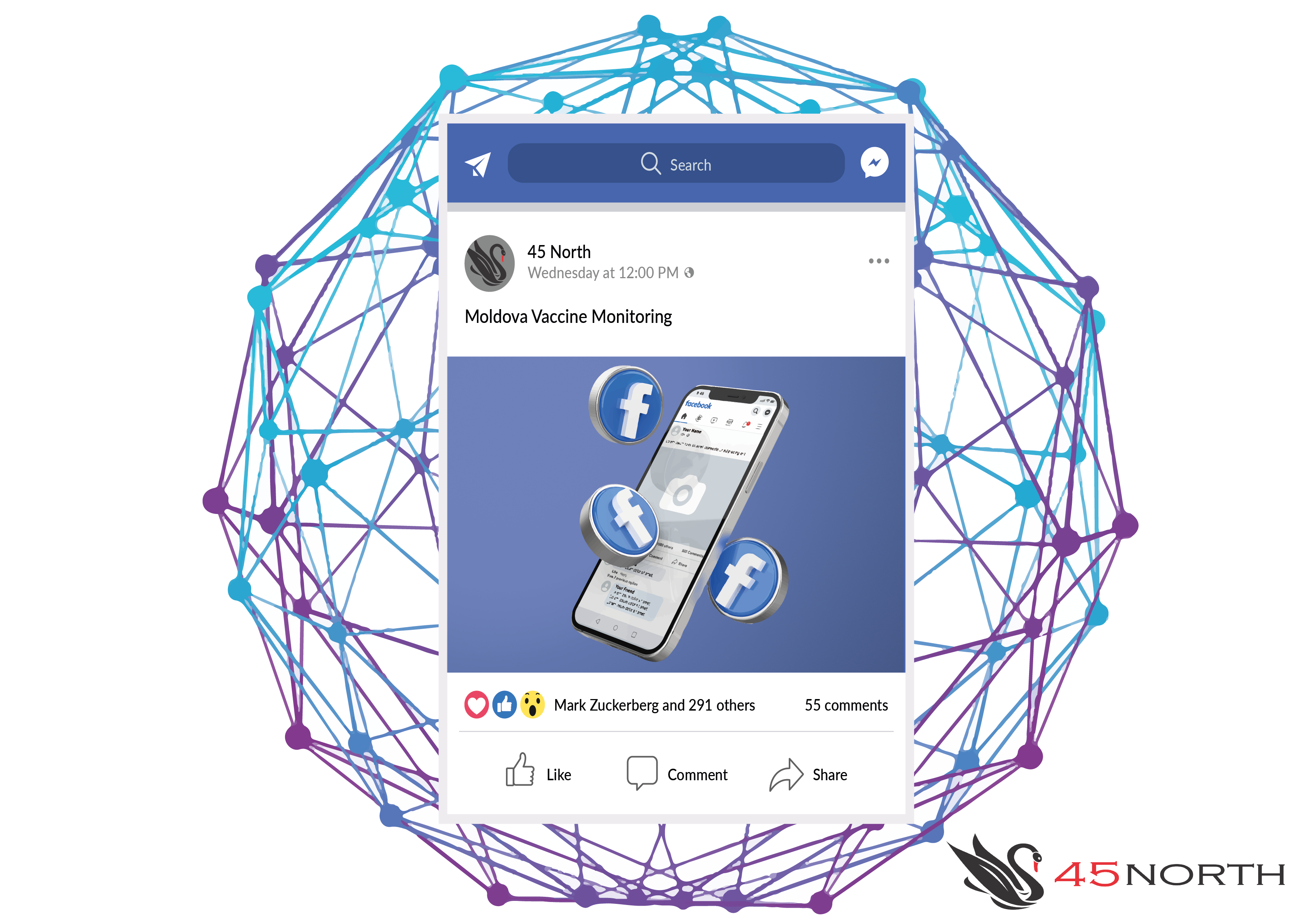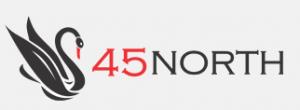In this report concerning the COVID-19 vaccine conversation on social media (Facebook) in the Republic of Moldova (Moldova), we look at data gathered by the International Republican Institute’s Beacon Project, via the tool CrowdTangle, to try to understand the trends and narratives that define it. We inclined towards local sources, despite the commonality of the Romanian language between the Romanian and Moldovan Facebook cyberspaces.
Methodology
In terms of research methodology, we used data extracted from CrowdTangle, in order to sort the 20 Facebook public pages that had the most posts containing a set of keywords referring to the vaccine conversation, like “vaccine” or “vaccinated”, or names of vaccines in circulation (though not necessarily approved in Moldova), like “sinopharm”, “pfizer” or “astrazeneca”. Based on these keywords the 20 pages that had the most posts containing one or more of these keywords in the first six months of 2021 were selected. In other words, we looked at the pages that were most active on Facebook with regards to the vaccination process and vaccines overall.
The main challenge in sorting a relevant sample of pages was the fact that we had to separate the Romanian and Moldovan Facebook ecosystems based on geography, not language. Because location is self-reported on Facebook, we filtered the results based on prior knowledge of the media market in of Moldova, making sure that the pages that resulted are representative and mostly local.
We also took into consideration the political and geopolitical make-up of Moldovan society, the polarization between East and West, namely Russia and the European Union (Romania in particular). Thus, we included the two Sputnik Facebook pages in this analysis. We also included StirileProTV, a top tier, credible Romanian news source, which has a large following in Moldova. It is also important to mention that during the surveyed period (January 1 – June 30, 2021), Moldova experienced political turmoil, with the Parliament being dissolved to make way for early elections, which ultimately were won by the pro-Western, anti-corruption, current President Maia Sandu and her party, Partidul Acțiune și Solidaritate (PAS). This political turmoil probably had a polarizing effect on social media discourse, impacting other subjects like the vaccine conversation.
We limited ourselves to 20 pages to have a manageable data volume. Based on the versatility of CrowdTangle, we were able to see granular information regarding post volumes, post types, network maps, interactions and reactions, etc. We used this information and coupled it with our understanding of the narratives (especially Russian) that are being peddled in Moldova’s Facebook space.
CrowdTangle analysis
A useful overview of the Facebook vaccine conversation in Moldova can be seen in figure 1 below, where we can analyze the fluctuation in use for the selected keywords. We see that the keyword “vaccine”, with its derivates, registered 7,45k mentions, while the top three vaccine names were “AstraZeneca”, with 2,12k posts, “Pfizer” with 1,78k posts and “Sputnik”, with 1,46k posts. These posts are roughly concentrated mostly between February and May, which coincides broadly with the peak of the COVID-19 epidemic in Moldova this year (see fig. 2 and fig. 3).

The epidemic in Moldova was at its worst between 4 February (982 cases) and 24 March (2,273 cases), with a steep decline afterwards, with fewer than 500 cases per day starting from 24 April. In terms of daily deaths, most of the people that died from COVID-19 in Moldova were registered between 12 February (19 deaths) and May 6 (20 deaths), with a peak of 46 deaths on both 20 March and 6 April. Notable events that took place in this timeframe is the delivery of approximately 400,000 vaccine doses as a donation from Romania and the official start of the vaccination process, on 2 March.

Source: Worldometer

Source: Worldometer
In figure 4 we have a more granular look at the distribution of posts containing the specific keywords per day. The graph fluctuates with several clear peaks and troughs. There were 26 days with over 70 mentions, with a maximum of 108 posts on 30 March. The bulk of the posts are concentrated between 26 February and 7 May, with a significant median drop in posts containing the associated keywords afterwards.

There are two significant peaks, with over 100 posts, on 30 March and 7 May, a period that overlaps with the peak and the downward slope of COVID-19 deaths, from the peak registered on 30 March (46 deaths). During this interval, the vaccine related news in Moldova was that on 30 April, President Maia Sandu said she was getting vaccinated with AstraZeneca. The geopolitical fractures that are part of Moldovan society naturally infiltrated the vaccine conversation, with the Western made vaccines being pitted against Russia’s Sputnik V vaccine. China was also an important player in terms of vaccine diplomacy. Beijing donated 150,000 Sinopharm produced vaccine doses and Chișinău purchased 100,000 Sinovac produced doses. The purchase was not without controversy, with the CoronaVac batch from Sinovac having a price seven times that of its cheapest Western counterpart, AstraZeneca. The contract was awarded based on direct negotiation between the Moldavian state and the Chinese company.

When looking at the fluctuations of Chinese related vaccine keywords (Fig 5 – selected keyword “sinopharm”), the day of the donation ceremony of Sinopharm vaccines (27 March) mentioned above coincides with the day with the second most mentions of the keyword “sinopharm”, with other peaks on 30 March (15 posts) and 7 May (18 posts). The Russian vaccine had significantly more mentions in posts than its Chinese counterpart (1.46k versus 526 sinovac+sinopharm). There are three noticeable peaks in “sputnik” mentions, 26 February (44 posts), 24 April (67 posts), 26 June (57 posts) (see fig. 6).
On 26 February the Sputnik V vaccine was authorized by Moldova’s Medicines and Medical Devices Agency. The Sputnik Moldova Facebook page came second in number of posts that day (containing “sputnik” keyword), with sixposts, mostly mentioning the approval decision. One post says the pro-Kremlin politician, former president, Igor Dodon, claims that President Maia Sandu tried to hinder the approval process for the Russian vaccine, which was not true. On 24 April Sputnik Moldova had the most posts (containing “sputnik” keyword – 12 posts) and highlighted the 142,000 vaccine doses donated by Moscow. In the same day, there was a post where Dodon again claimed, with no evidence or exact references, that “some individuals in the government” tried to stop the delivery this time. Interestingly, on 26 June, the last peak, which we can clearly see in fig. 5, when Sputnik Moldova has the most posts in a day, containing the keyword “sputnik” (13 posts) in the entire period of the first six months of 2021 coincided with a “vaccination marathon” held in Chișinău. As reported by the Romanian National Television subsidiary in Moldova, Sputnik V was offered and was, according to people interviewed on the ground, the most in demand vaccine at said marathon. Sputnik Moldova shared articles from sputnik.md that day that tried to highlight this demand.

The two distinct Sputnik Facebook pages, Sputnik Moldova and Sputnik Moldova-Romania, predictably had the most posts containing the keyword “sputnik”, followed by Primul in Moldova Facebook page. This third Facebook page represents the social media profile of a television channel with the same name. It has low credibility and has a pro-Moscow leaning. The owner of the network is Igor Ceaika, the son of Russia’s ex-Chief Prosecutor, via Media Invest Service and Telesistem TV companies. The press reported close ties between Igor Dodon, the socialist, pro-Kremlin, ex-president of Moldova, and Igor Ceaika. When we look at the network distribution (fig. 7) of how the 20 pages that we analyzed shared links of certain domains we see it is relatively evenly distributed, with no one Facebook page clearly dominating the number of links shared, which is a healthy sign. A not so healthy sign is that almost all pages have shared content with links to their own domains, meaning that if you follow a certain set of Facebook pages, you will be exposed to the same type of content, with little to no diversity of sources.


In fig. 8 we see the 20 pages analyzed sorted by number of posts, with ȘtirileProTV dominating this chart, with its Moldovan subsidiary, ProTVChișinău, coming second. TV8.md, The Facebook page of TV8 tv channel, which is owned by the non-profit NGO “Media Alternativa”, which funds itself through grants from foreign donors, such as UK’s Foreign Office or Open Society Foundation. It is a balanced, fact-based news source. The top five is rounded out by ZUGO and TV6. ZUGO, as the first three Facebook pages, is a credible source. TV6 is not a credible source as it is associated with the fugitive member of parliament, Ilan Șor, the head of the Șor Party, named after him. He is suspectedof being involved in the largest theft in Moldovan history of 1 billion euros from the national banking system in 2014. In the mix we also have Facebook pages for so-called news websites, like sinteza.org, where journalists post with fake names. It was set up in late 2020 to smear Maia Sandu’s presidential campaign. A good source of information we see on 8th place, Agora.md, a mostly self-financed news company, with no political affiliation. Overall, this mix, as well as the first five Facebook pages are an indication that, even though the vaccine discussion of Facebook in Moldova has been touched by disinformation and distortion, it had substance and it was generally more fact based than not.
Focus on June
When we look at the situation in the month of June, we see some changes compared to the situation for the whole first six month. In fig. 8 we see that the keyword “sputnik” was first in the analyzed posts, with 243 posts, “astrazeneca” second, with 201 posts and “pfizer” third with 189 posts. As we have seen, in the first six months, “sputnik” keyword came third when looking at the first six months. This change also overlaps with the fact that the top three pages by number of posts are not credible and/or politically biased. We can see that the most posts were from ORHEI TV, a TV channel associated with Ilan Șor, a controversial politician mentioned above.

The post with the most interactions (3,988 interactions) was from TV8.md, a post referring to the large number of tests performed, as well as underlying people’s disappointment with the need to undergo a COVID-19 test, even though being vaccinated, when going abroad. The post with the most interactions (930) containing the keyword “sputnik” is from Agora.md, a credible source that cited Igor Dodon’s desire to produce the Sputnik V vaccine in the Republic of Moldova.
Chinese related keywords, “sinovac” and “sinopharm” had a strong presence in the data for June, with a total of 79 and 76 posts, respectively. ORHEI.TV (16 posts), Agora.md (13 posts) and TV6.MD (13 posts) had the most posts with these keywords (see fig 10).

The network distribution map for June is similarly balanced like the one for the first six months, with no Facebook page dominating the number of posts shared. Generally, Facebook pages shared in June their own domains, links to their associated websites. The most links were from tv6.md (79), followed by orheitv.md (78) and safenews.md (73), all of them less than credible news sources.

Narrative analysis
In this section of the report, we try to have a deeper look at the type of narratives that malign foreign actors use in Moldova, particularly the Russian Federation, which has a special interest in this country. Sputnik Media, one of the Kremlin’s principal mouthpieces on the international stage was, unsurprisingly, at the forefront of the use of these narratives. We found out three types of narratives used by Moscow:
The first narrative that we identify on the Facebook page of Sputnik Moldova and its website refers to the inefficiency of Western vaccines and dangerous side effects, with most of the examples of posts found containing the word “death”. We observe how in plenty of examples Sputnik publishes information according to which several citizens from different European states died after being immunized with either Pfizer or AstraZeneca. What all these articles have in common are the alarming headlines that mislead readers, and the fact that specialists are being cited in articles who deny the connections between the deaths and the vaccine in question. This type of news registers among the highest numbers of interactions.
This narrative was popular in the first part of the year, especially between January and March. Some notable examples:
- (January) News referring to a Greek doctor, with the title “Greek doctor, in intensive care after he got the Pfizer vaccine“, although the article specifies that there is no correlation between vaccination and infection.
- (January) News published on both the Sputnik Moldova and Sputnik Moldova-Romania Facebook pages referring to 13 deaths in Norway, the title being also suggestive „Norway: 13 deaths related with Pfizer vaccines – “We don’t see anything alarming“, the same narrative, although again in the article the director of the Norwegian Medicines Agency is quoted. “We do not see anything alarming about these figures. All deaths occur in the elderly and frail, with underlying diseases, explained Dr. Steinar Madsen”.
- This news type continues in February when another alarming news: “Attention! Hundreds of vaccinated people became infected – the explanation “. With a constant skeptical attitude towards the Pfizer vaccine, the author writes about the infection of 240 people vaccinated with the first dose of Pfizer in Israel within a couple of days. The word „explanation” misleads the public, as the content of the article is based on the opinion of the author, but also on information that does not appear in the title. He uses the word immunized in the title without specifying that this is the first dose.
- In March we had a news story titled “Three deaths in Romania after vaccination with Pfizer“. In the text we notice the fact that the deceased people suffered from other health problems. Also, the author later points out the responsibility of the Pfizer company to test the people before the vaccination in order to avoid cases like those explained in the article. The article ends with an alarming exclamation: A huge scandal arises – and its terrible aspects must be clarified urgently!”
The second narrative theme we observed refers to the promotion of the Sputnik V vaccine and the repeated mention of the help offered by the Russian Federation. According to its official website, Sputnik V is being funded and coordinated (in terms of research funding, production facilities and international distribution) by RDIF – The Russian Direct Investment Fund, Russia’s sovereign wealth fund which acts as a catalyst for direct investment in the Russian economy. So, besides the obvious benefits of “vaccine diplomacy”, Russia has a direct economic interest in selling as many doses of Sputnik V as possible and will first tackle prone markets, such as the Republic of Moldova, based mostly on pragmatic relations on the ground:
- On April 1, Sputnik shared the news that “Russia will provide Moldova with 180,000 doses of Sputnik-V vaccine.” According to the article, it is worth mentioning that Igor Dodon made the announcement. Dodon, the socialist leader, announced this after a meeting in Moscow with the Deputy Kremlin Chief of Staff, Dmitri Kozak. Kozak is considered the person designated by Putin to manage the Kremlin’s political strategy towards the former Soviet space, making sure that pro-Western forces do not gain a definitive foothold there. According to an investigative piece by OCCRP-affiliated Rise Project Moldova, Kozak is one of the highest-ranking persons in the Kremlin who coordinates the so-called “Moldovan subdivision”, an group of intelligence officers and political operatives that oversee Russia’s interests in the small European country.
- Also on this topic, four articles were published on April 23 and 24, focusing on the same topic, but also a live video published on the Facebook page regarding the receipt of one of the shipments. The first article refers to the discussion between Aureliu Ciocoi, interim prime minister at that time, and the ambassador of the Russian Federation in the Republic of Moldova. Another article includes images from the moment the aircraft landed, but also with officials, including Igor Dodon, the former president. This article is supplemented by another that contains similar information and other statements regarding Russia’s donations. The fourth captures Maia Sandu’s gratitude for the Russian donation.
The recurrence of the articles contrasts strongly with the news regarding the donations made by Romania, as we will see. Moreover, Sputnik promotes a survey conducted by the company iData which quoted “Sputnik V vaccine, the most popular among Moldovans.” An article in which the donation made by the Russian federation is mentioned.
The third theme for Russian narratives is citing controversial individuals, but who have large social media followings, using their statements to advance Russian agenda points:
- Sputnik Moldova Romania repeatedly promotes the opinions of Adina Alberts, regarding Russian vaccines: „Dr. Alberts: Net benefits of the Russian vaccine compared to existing RNA vaccines in Romania ” and The Russian Sputnik vaccine is a better option” . Adina Alberts, although presented as a doctor, does not have a specialization in epidemiology or infectious diseases, rather she is a plastic surgeon, and she has stood out during the pandemic with controversial claims. She also owns an organization that advocates against vaccination passports. She is the wife of Viorel Cataramă, a Romanian businessman, millionaire, and a candidate for various positions such as president or senator. He is a controversial individual himself, participating and encouraging anti-mask and restrictions protests in 2020, saying that COVID-19 is no more dangerous than the common flu. The promotion of such people by Sputnik can only highlight a hostile attitude towards everything that means Western pro-vaccination discourse.
- Another person promoted by Sputnik Moldova-Romania is Mircea Badea, a famous television producer for Antena 3, a Romanian TV news channel. The tile of the article is a quote from Mr. Badea: “I declare publicly: I piss on their vaccines!” The article said that he reacted to the stupidity of the public opinion regarding the vaccination and the new subject of skipping the line of vaccination. Mr. Badea is well known in Romania for his staunch anti-DNA stance and its anti-American stance, being very critical of the nation’s efforts to fight corruption (DNA – National Anti-Corruption Directorate).
Conclusions
The Facebook vaccine discussion in Moldova, in the Romanian language, has been quite balanced, taking into consideration that it is a vulnerable country to disinformation, it is always between the East and the West in terms of ideology and communication and is already a target of massive disinformation campaigns from Russian state controlled or affiliated actors. Sputnik pushed its usual narratives, like controversial individuals and favorable, biased coverage of Russian help, trying to help the Russian state in its effort to sell as many doses as possible of Sputnik V in Moldova.
Another key driver in how the posts and mentions fluctuated was the epidemic itself, with the peaks and troughs of cases and deaths determining reactions in the Facebook conversation. Finally, the political turmoil of Moldova, early elections and the dissolution of Parliament also added to a highly polarized cyberspace, a mirror of the Moldovan society, which effects on whether people chose to vaccinate or not, or what vaccine will they use. The recent victory of Maia Sandu in the early parliamentary elections may be related to what this report found, namely that the overall Facebook vaccine conversation in Moldova is fact based and the distribution of links and information is even and not dominated by one or several sources. When looking at how the two rival politicians positioned themselves with regard to vaccines, Maia Sandu being pro-science and pro-vaccination, while Dodon being pro-Sputnik V and basing decisions on politics, we could conclude that facts won and people who follow her and the science of vaccines outnumber the ones that don’t.
Disclaimer: This report has been prepared with support from IRI’s Beacon Project. The opinions expressed are solely those of the author and do not reflect those of IRI

